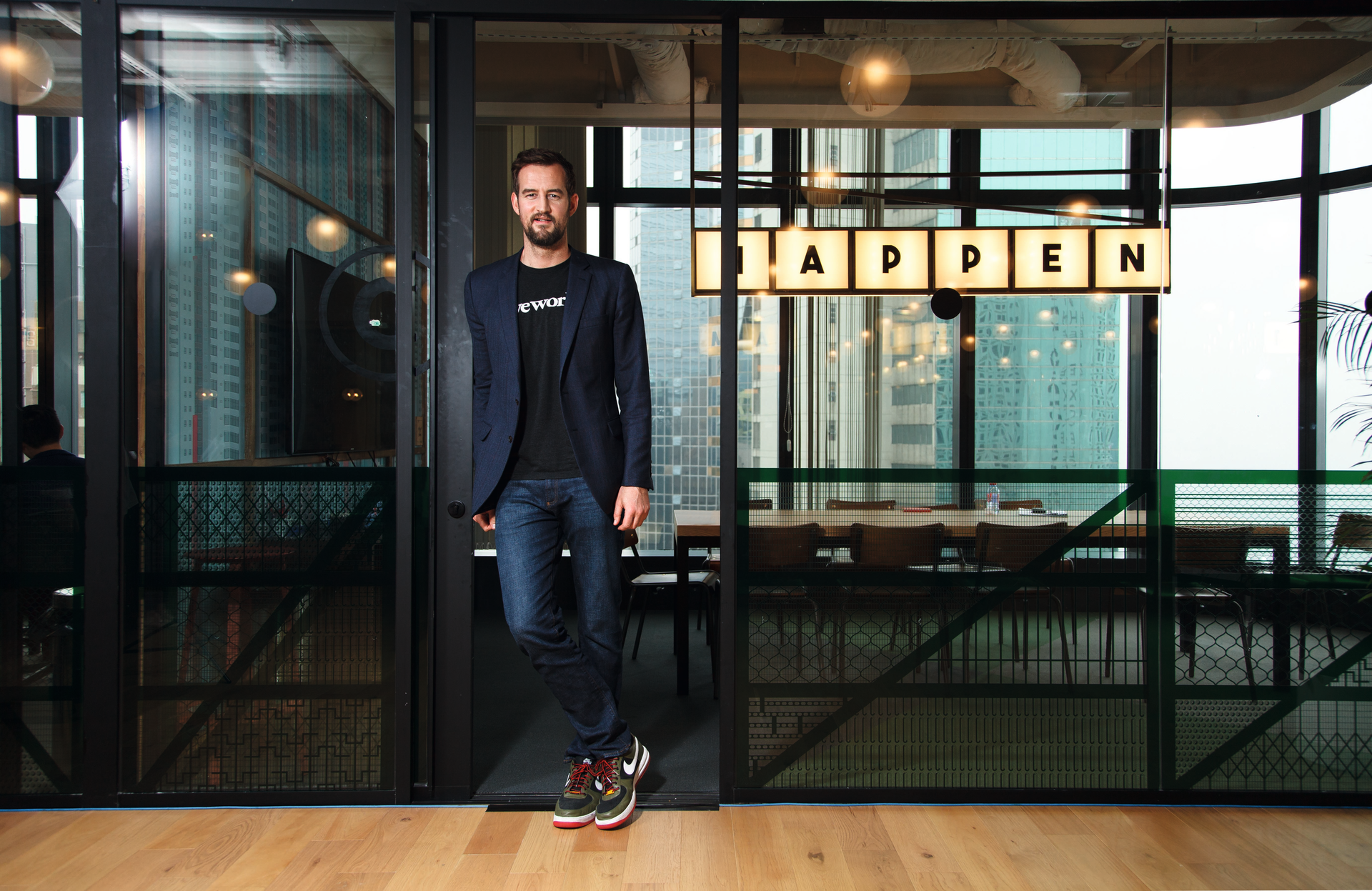WeWork, the startup famous for open-concept office spaces worldwide, is reportedly taking meat off the menu for its employees.
Bloomberg first reported the change on July 13, which was enacted by the company’s co-founder to reduce its environmental footprint. Some 6,000 global staff will no longer be able to expense meals including meat, and the company won’t pay for any red meat, poultry, or pork at future events.
Miguel McKelvey, WeWork co-founder and chief culture officer, in an internal email obtained by DMN, announced the initiative to employees on July 12.
“In the past few weeks, many teams around the world have already taken action to help us become more environmentally conscious,” McKelvey wrote. “From plastic-free events in Montreal to recycling initiatives in Hong Kong, we’re excited and humbled by how quickly our teams can make an impact. But we know we can do more.”
McKelvey also went on to cite research from the academic journal, Science, indicating that avoiding meat consumption can have a massive impact on protecting the environment. McKelvey estimated that the company could save 16.7 billion gallons of water, 445.1 million pounds of CO2 emissions, and over 15 million animals before 2023 by eliminating meat at their events. The initiative also affects the company’s “Honesty Market” — a 24/7 snack and beverage kiosk at select locations.
A WeWork spokeswoman stressed that both employees and members of WeWork are free to supply meat themselves, and that the initiative was solely an effort to control how company money would be spent.
“We are energized by this opportunity to leave a better world for future generations and appreciate your partnership as we continue the journey,” McKelvey wrote.
WeWork’s initiative follows similar ones taken by companies like Patagonia, Givewith, and others, to make a brand’s mission actionable. It’s “practicing what you preach,” for brands. Increasingly, companies are faced with making these sometimes politically-charged decisions because they can be too damaging to ignore.
At C3 in March, WeWork CEO Adam Neumann explained that the brand’s goals were ambitious — likening them to that of Amazon. Part of that, he said, is letting the company’s mission emanate out into the world.
“In WeWork we would like to create a world that we love — and we would like to create a life, not a living,” he said.
Consumers increasingly want brands to share their beliefs, especially with controllable activities such as environmental impact. A 2017 report from public relations firm Edelman found that 50 percent of buyers now consider a brand’s beliefs when weighing purchases. Additionally, that report found that 57 percent of consumers are more likely to buy from or boycott a brand because of its stance on a social or political issue — the majority of whom are millennials.
As more brands take political action — whether it be as seemingly harmless as no longer spending company dollars on meat, or as monumental as pulling video ads from Hannity — the issues become harder to ignore. Clearly, with WeWork as the latest prominent example, brands are pivoting to the ebbs and flows of the American consumer ethos.
Doing so, however, comes with great risk.
Slate contributor Felix Salmon called WeWork’s meatless initiative “tyrannical” and “virtue signaling” in a July 13 op-ed. Salmon argued that though the move would probably result in T&E savings for WeWork, that it would be difficult — even frustrating — to enforce. Though there will invariably be a troubleshooting period for WeWork, Salmon makes an interesting point about the authenticity of brands’ activism claims. Is there a burden of proof on a brand to deliver claims of, say environmental activism?
Salmon wrote: “WeWork, of course, has a substantial environmental impact of its own, almost none of which is food-related. It manages 10 million square feet of office space in 76 cities around the world, including Warsaw and Chengdu; across its 406 locations, some have much higher carbon footprints than others … There would be much easier and much more effective ways of reducing the company’s carbon footprint.”
This kind of pressure on brands then, seems twofold: (1) Consumers want brands to stand up for their beliefs, even if that means excluding others, and (2) they want authenticity in those stances. Unfortunately, from a branding perspective, the latter seems to be just as tricky to navigate as the former.








